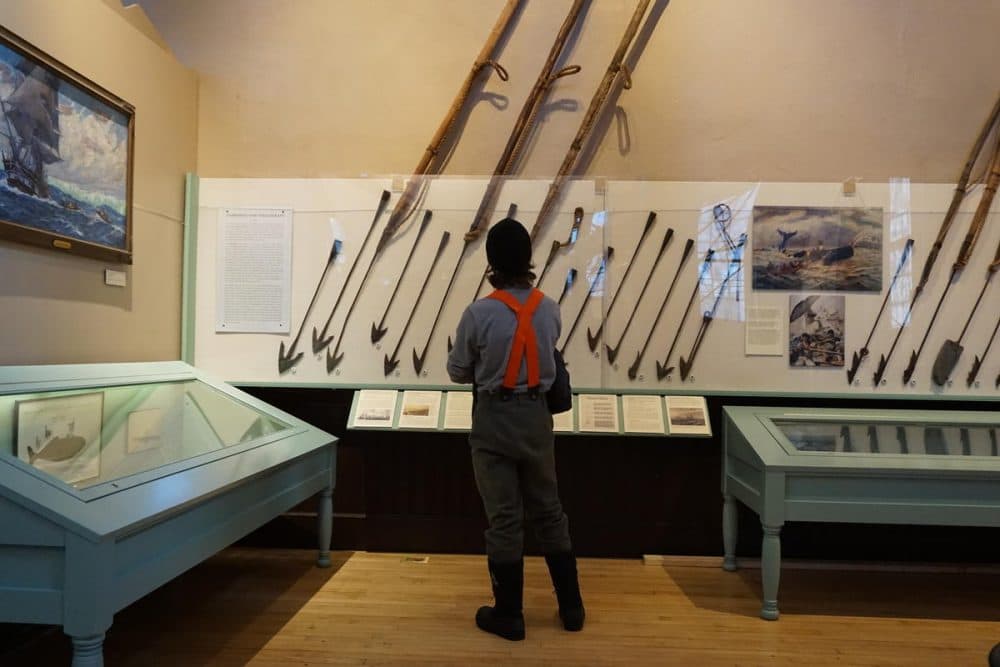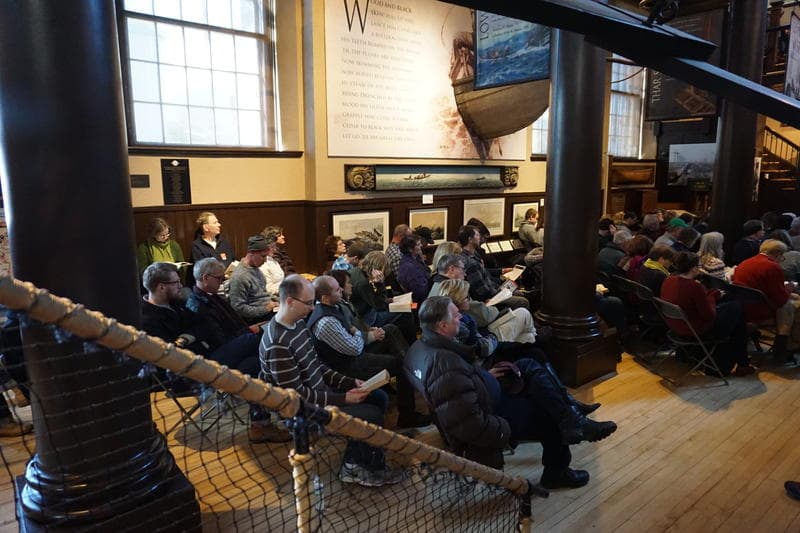Advertisement
One Square Mile: Walk A Mile In Ishmael's New Bedford
Resume
Do you have a favorite book? Maybe it’s a novel you read again and again. But has a work of fiction ever inspired your vacation plans?
New Bedford is the destination for devotees of one famous literary leviathan.
Even if you haven't read Herman Melville’s 1851 novel "Moby-Dick," you probably know the story: A man named Ishmael hops aboard a ship with a colorful crew, in search of a white whale.
But before he does, Ishmael stops off in New Bedford. Once the whaling capital of the world, Melville himself stopped in the city before his own whaling voyage, which would inspire his novel.
The city is still dotted with emblems of its whaling past, including a major museum, a national park branch and a brewery.
As nearby waterfront cities like Portsmouth, New Hampshire, and Portland, Maine, cash in on a growing tourism industry, New Bedford officials hope to lure visitors with their famous literary connection.
“When we’re trying to promote and sell New Bedford, as soon as we say ‘Moby-Dick,’ you know the light bulb goes on," Dagny Ashley, the city's tourism director, said. Ashley added that she’s seen more than a 10 percent increase in visitors to the city in the past few years.
That’s because the book, long a staple on high school reading lists, has captured the American imagination since the turn of the century. (Though published during the Civil War, "Moby-Dick" didn’t really take off in the U.S. until the 1920s.)
And Melville’s epic is having a moment.
“'Moby-Dick' is definitely part of a new resurgence, there’s such a huge interest in it," said Mary Bercaw, a professor of literature at the University of Connecticut. "It’s just astounding how much interest there is in it.”
That’s why hundreds of people come to New Bedford each January to attend the annual Moby-Dick Marathon, a 24-hour live reading of the novel. Fans gather at the New Bedford Whaling Museum, many following along with their own dog-eared copies. Organizers say the event has ballooned in recent years, with visitors from across the globe and a wait list of hopeful readers.

Blocks away from the Whaling Museum, you can grab a bite to eat at Whaler’s Tavern or drink a pint at the Moby Dick Brewing Company. All the beers are named for ideas in the book, like the Irish Amber, “Ishmale.” (Get it?)
New Bedford native Scott Brunelle is brew master who read the book when he was in high school.
“If you grow up around here you have to read it, usually your sophomore year I believe,” Brunelle said. “Back then I thought it was very long and a little long-winded.”
Since the brewery opened, Brunelle reread the book, and he says he appreciated it more the second time.
So how has this weighty book about whaling hung on for more than a century?
“I think it’s partly the big fundamental questions that Melville’s asking in the book keep appealing to people," Bercaw said. "Even in a day when people do social media, when things are shorter and simpler, this book is still going."

Dense and pithy, "Moby-Dick" invites close reading and heated opinions. The meaning of the novel has even been ribbed on by the television show "The Simpsons."
Lydia Peelle, who came from Nashville for the Moby-Dick Marathon, offered her theory of the novel.
"At its heart, it is a book about America,” Peele said. “And the whale ship, of course, is this beautiful microcosm of the world.
"There’s men on that whale ship from all corners of the globe, all religions, all faiths, all races, and you know they’re all forced to get along.”
This report comes from the New England News Collaborative and was first published by Rhode Island Public Radio.
This segment aired on February 19, 2018.